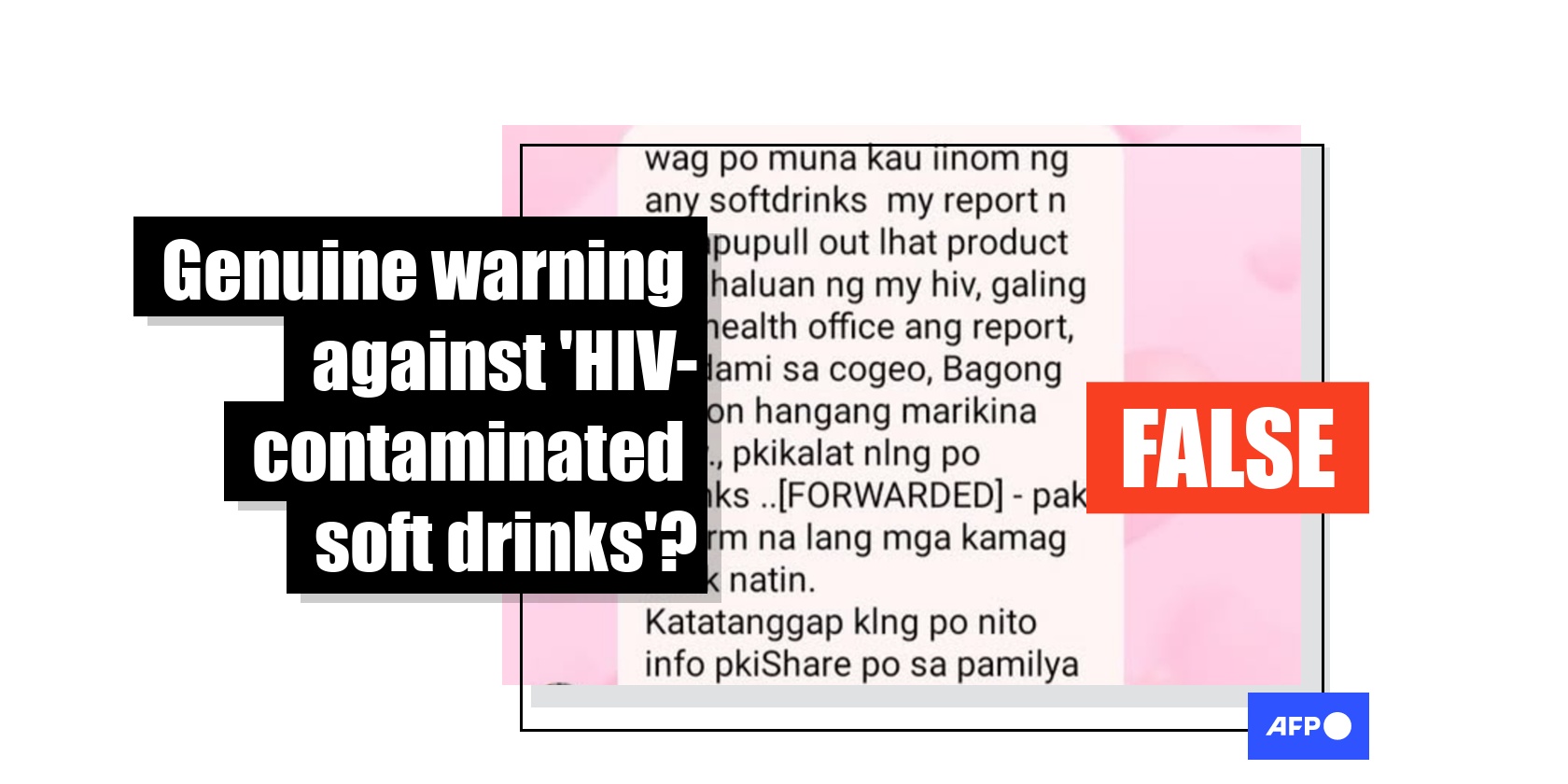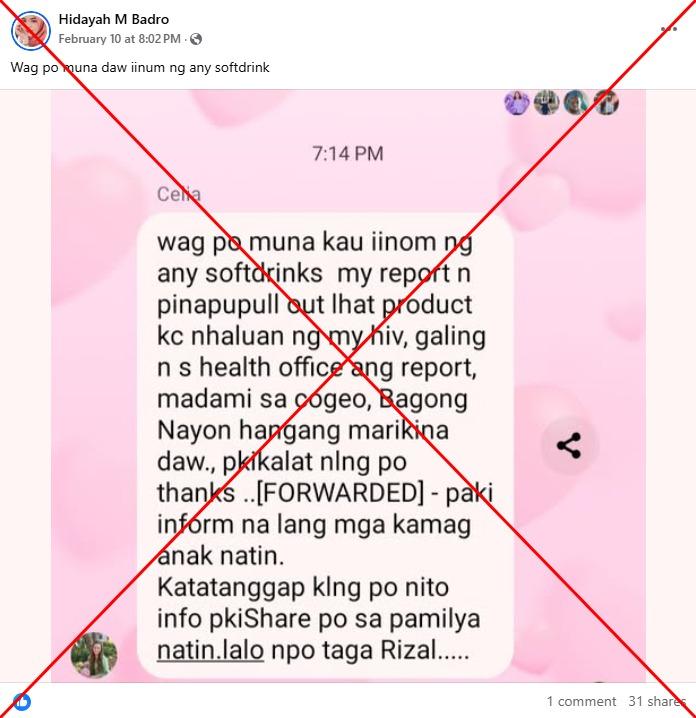
'HIV in soda' hoax scares Philippine social media users
- Published on February 25, 2025 at 08:08
- 2 min read
- By Ara Eugenio, AFP Philippines
"Please don't drink any soft drinks for now," reads a Tagalog-language Facebook post shared on February 10, 2025.
It included a screenshot appearing to show a conversation on Facebook Messenger that said in part: "There’s a report that all [soft drink] products are being pulled because they were contaminated with HIV."
It alleges that the report originated from a health office, though it does not specify which one, and further claims that cases were detected in parts of Antipolo City in Rizal province and Marikina City, east of Manila.

Similar posts surfaced elsewhere on Facebook, stoking fear among users of the platform.
"This is very scary, to think I drink soft drinks everyday," one user said.
"What will happen to us vendors? How will we sell soft drinks now?" another commented.
UN data show the Philippines has one of the world's fastest-growing epidemics, with experts blaming online dating, poor sex education and conservative attitudes in the deeply religious country for fuelling the spread of the virus (archived link).
The virus attacks the immune system, weakening the body's ability to fight infections and causes acquired immunodeficiency syndrome (AIDS) at the most advanced stage (archived link).
Hoax warning
According to the World Health Organization, HIV is transmitted through the exchange of body fluids from people living with HIV, including blood, breast milk, semen and vaginal secretions (archived link). The virus can also be transmitted to a child during pregnancy and delivery.
It cannot be transmitted through food or drinks, said the Philippines' Department of Health.
"Since 1984 to the present year, the DOH has known that the modes of transmission of HIV are sexual contact, sharing of infected needles, mother-to-child transmission, blood/blood products, and needlestick injuries," the department's spokesperson Dr Albert Domingo told AFP on February 14.
HIV cannot survive the acidic environment of soft drinks, let alone be transmitted through ingestion, said University of Philippines infectious disease expert Dr Edsel Salvana on February 16.
"Even if there was some viable virus in the food or drink, unless there were fresh wounds in the mouth or esophagus, the virus would not be able to gain entry and would quickly be destroyed by stomach acid."
Salvana emphasised that HIV is a fragile virus that degrades quickly in the environment and does not survive long in tap water (archived link). The virus would also be destroyed by heat and drying, he said.
FDA spokesperson lawyer Pamela Sevilla told AFP they have not received any notice of a product recall initiated by a soft drink company.
The health office in Antipolo City also urged the public not to fall for the hoax in a Facebook post on February 13 (archived link).
AFP has previously debunked a similar hoax claiming HIV was transmitted through contaminated fish.
Copyright © AFP 2017-2026. Any commercial use of this content requires a subscription. Click here to find out more.
Is there content that you would like AFP to fact-check? Get in touch.
Contact us
